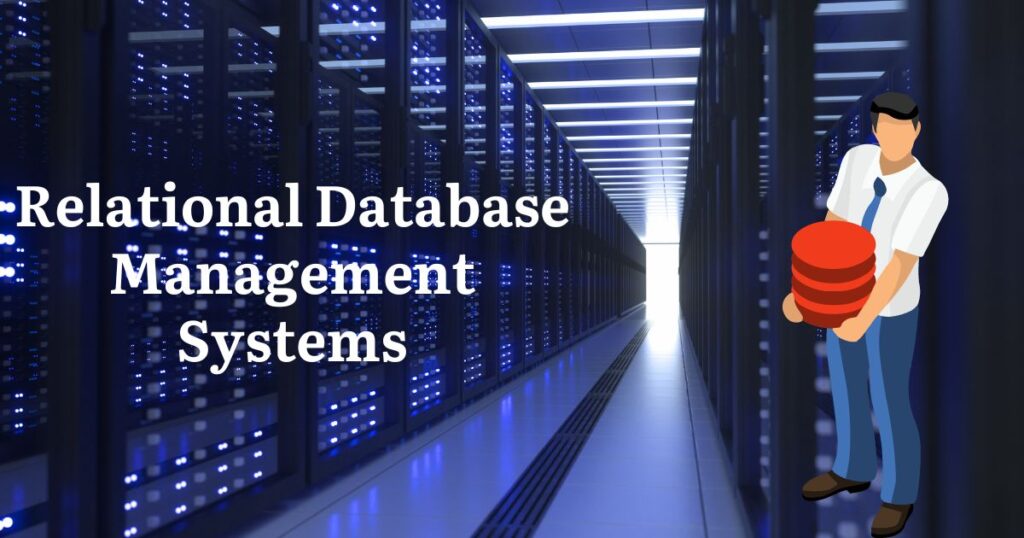Table of Contents
1. Introduction to Relational Database Management Systems (RDBMS)
Relational Database Management Systems (RDBMS) are the backbone of modern data management, powering everything from small business operations to large-scale enterprise applications. An RDBMS organizes data into structured tables and allows for easy querying, updating, and management. In this article, we’ll explore the key features, benefits, and challenges of RDBMS, providing a comprehensive overview of why it’s indispensable in today’s data-driven world.
2. Core Concepts of RDBMS
What is a Relational Database?
A relational database is a type of database that stores and provides access to data points that are related to one another. The data is organized into tables (also known as relations) that consist of rows and columns. Each table represents an entity (e.g., a customer or product), and each row in the table is a record containing unique data.
Key Components of RDBMS
- Tables: Organized collection of data entries.
- Primary Keys: Unique identifiers for records within a table.
- Foreign Keys: Links between tables that establish relationships.
- SQL (Structured Query Language): The language used to query and manage the data within an RDBMS.
3. Types of Relational Database Management Systems
Hierarchical vs. Relational Databases
Hierarchical databases store data in a tree-like structure, which is rigid and less flexible compared to relational databases. In contrast, relational databases allow for more dynamic and complex data relationships.
SQL vs. NoSQL
SQL databases follow a structured schema, making them ideal for applications requiring precise data integrity. NoSQL databases, while not strictly relational, are more flexible and can handle unstructured data, but at the cost of some data integrity features.
Read the more information about the Relational Database Management Systems.
4. Benefits of Using an RDBMS
Data Integrity and Accuracy
RDBMS ensures that data is consistently accurate and reliable through the use of constraints and rules, which enforce data integrity.
Scalability and Flexibility
Modern RDBMS platforms can scale vertically and horizontally, handling increased data loads and complex queries efficiently.
Enhanced Security Features
RDBMS offers robust security features, including user authentication, access control, and encryption, ensuring that sensitive data is protected.
5. Popular Relational Database Management Systems
Oracle Database
Oracle is a highly robust and scalable RDBMS used by large enterprises worldwide. It offers comprehensive security features and is known for its reliability.
MySQL
MySQL is an open-source RDBMS that is widely used for web applications. It is known for its ease of use and integration with various development environments.
Microsoft SQL Server
Microsoft SQL Server is a popular choice for businesses that rely on Microsoft technologies. It offers seamless integration with other Microsoft products and strong support for business intelligence applications.
PostgreSQL
PostgreSQL is an open-source RDBMS that is renowned for its advanced features, such as support for complex queries and data types. It is highly extensible and customizable.
You can also read the more articles which are related to the Technology. CLICK HERE
6. How RDBMS Enhances Business Operations
Efficient Data Management
RDBMS allows businesses to store, retrieve, and manage data efficiently, reducing redundancy and improving overall data quality.
Streamlining Business Processes
By centralizing data management, RDBMS can streamline business processes, leading to increased productivity and reduced operational costs.
Real-World Examples of RDBMS in Action
- Healthcare: Managing patient records and treatment histories.
- Finance: Handling transaction processing and risk management.
- E-commerce: Managing inventory and customer data.
7. Challenges and Limitations of RDBMS
Complexity and Cost
Implementing and maintaining an RDBMS can be complex and expensive, particularly for large organizations.
Performance Issues with Large Datasets
As datasets grow, RDBMS performance can degrade, leading to slower query times and increased maintenance efforts.
Migration Challenges
Migrating data from one RDBMS to another or to a different database architecture can be challenging and time-consuming.
read the new article Intel Gaudi 3 Accelerators Coming to IBM Cloud as a Service
8. Future Trends in Relational Database Management Systems
Cloud-Based RDBMS Solutions
Cloud-based RDBMS solutions offer scalability and flexibility, allowing businesses to pay for only what they use and easily scale as their needs grow.
Integration with Big Data Technologies
RDBMS is increasingly being integrated with Big Data technologies to handle larger datasets and more complex queries.
AI and Machine Learning in RDBMS
AI and machine learning are being used to optimize query performance, automate database management tasks, and predict trends in data.
9. Practical Applications of RDBMS
Use Cases in Healthcare
RDBMS is used to manage electronic health records (EHR), enabling better patient care through accurate and timely data access.
Use Cases in Finance
In finance, RDBMS is essential for managing transactions, regulatory compliance, and risk management.
Use Cases in E-commerce
E-commerce platforms use RDBMS to manage product catalogs, customer data, and order processing, ensuring smooth and efficient operations.
10. Conclusion: The Indispensable Role of RDBMS in Modern Data Management
Relational Database Management Systems are crucial for organizing, managing, and retrieving data efficiently. As businesses continue to rely on data-driven decision-making, the role of RDBMS in ensuring data integrity, security, and accessibility becomes ever more vital.
FAQs.
What is the difference between RDBMS and DBMS?
While DBMS refers to a general system for managing databases, RDBMS specifically refers to systems that use a relational model, where data is organized into tables with relationships between them.
How does an RDBMS ensure data integrity?
RDBMS ensures data integrity through constraints such as primary keys, foreign keys, and unique constraints, which prevent invalid data from being entered into the database.
What are the most common types of RDBMS?
The most common types of RDBMS include Oracle Database, MySQL, Microsoft SQL Server, and PostgreSQL.
Can RDBMS handle unstructured data?
Traditionally, RDBMS is designed for structured data, but with advancements in technology, some modern RDBMS platforms now offer support for semi-structured and unstructured data.
What is the future of RDBMS in the age of Big Data?
The future of RDBMS lies in its integration with Big Data technologies and cloud-based solutions, allowing for better scalability, flexibility, and handling of large, complex datasets.
